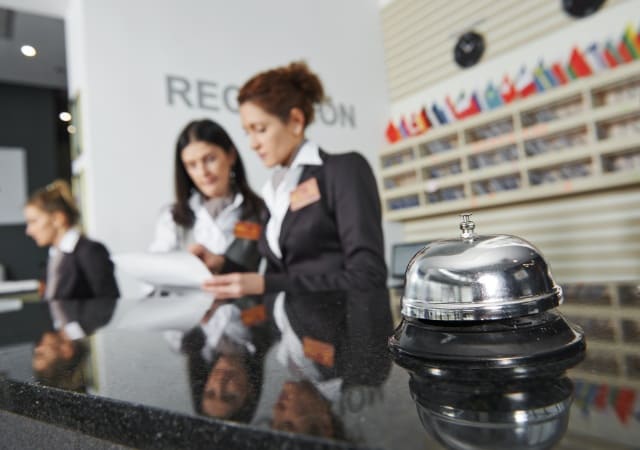Planning a trip to France? Brushing up on your French can greatly enhance your experience. Locals appreciate even minimal efforts to speak their language, and they’ll often switch to English if needed. Whether you’re exploring Paris, Normandy, or Bordeaux, a little French goes a long way in making your journey smoother and more enjoyable.
Here, you’ll find many real-life examples that should prove useful.
Table of Contents
The Very Basics
Essential phrases for everyday interactions
- Bonjour (Good morning/Hello) — A polite way to greet someone during the day.
- Bonsoir (Good evening) — Used as a greeting in the evening or at night.
- Merci (Thank you) — A universal phrase to express gratitude.
- S’il vous plaît (Please) — Important for making polite requests.
- Excusez-moi (Excuse me) — Useful for getting attention, apologizing, or passing through a crowd.
- Au revoir (Goodbye) — Commonly used when departing any time of day.
- Je ne parle pas français (I do not speak French) — Useful to inform others of your language limitations.
- Parlez-vous anglais? (Do you speak English?) — Helpful when seeking someone who speaks English.
Food and Restaurants

Questions you might need to ask (and answers you might hear!)
- Puis-je voir le menu, s’il vous plaît? (May I see the menu, please?)
- “Bien sûr, le voici.” (Of course, here it is.)
- “Je vous apporte cela dans un instant.” (I will bring it to you in a moment.)
- Quels sont les plats recommandés aujourd’hui? (What are the recommended dishes today?)
- “Je recommande le plat du jour, qui est le coq au vin.” (I recommend the dish of the day, which is coq au vin.)
- “Nos spécialités sont les fruits de mer.” (Our specialties are seafood.)
- Avez-vous des options végétariennes? (Do you have any vegetarian options?)
- “Oui, nous avons plusieurs plats végétariens comme le risotto aux champignons.” (Yes, we have several vegetarian dishes like mushroom risotto.)
- “Non, désolé, nous n’avons pas de plats végétariens.” (No, sorry, we don’t have vegetarian dishes.)
- Ce plat contient-il des noix? (Does this dish contain nuts?)
- “Oui, ce plat contient des noix.” (Yes, this dish contains nuts.)
- “Non, il n’y a pas de noix dans ce plat.” (No, there are no nuts in this dish.)
- Pourriez-vous remplacer certains ingrédients? (Could you replace some ingredients?)
- “Oui, nous pouvons faire des modifications selon vos préférences.” (Yes, we can make modifications according to your preferences.)
- “Non, malheureusement, nous ne pouvons pas modifier les plats.” (No, unfortunately, we cannot modify the dishes.)
- L’addition, s’il vous plaît? (The check, please?)
- “Je vous l’apporte tout de suite.” (I will bring it to you right away.)
- “Vous voulez payer en espèces ou par carte?” (Do you want to pay in cash or by card?)
Questions you might be asked (and answers you might give!)
- Combien êtes-vous? (How many are you?)
- “Nous sommes deux, merci.” (We are two, thank you.)
- “Je suis seul(e).” (I am alone.)
- Avez-vous réservé une table? (Have you reserved a table?)
- “Oui, j’ai une réservation au nom de [Nom].” (Yes, I have a reservation under the name [Name].)
- “Non, je n’ai pas réservé. Avez-vous une table disponible?” (No, I haven’t reserved. Do you have a table available?)
- Préférez-vous dîner à l’intérieur ou à l’extérieur? (Would you prefer to dine inside or outside?)
- “À l’intérieur, s’il vous plaît.” (Inside, please.)
- “À l’extérieur, s’il fait beau.” (Outside, if the weather is nice.)
- Des allergies ou des préférences alimentaires? (Any allergies or dietary preferences?)
- “Je suis allergique aux arachides.” (I am allergic to peanuts.)
- “Je suis végétarien(ne). Pouvez-vous recommander quelque chose?” (I am vegetarian. Can you recommend something?)
- Quel type de vin pouvez-vous recommander avec ce plat? (What type of wine would you recommend with this dish?)
- “Quel vin se marie bien avec le boeuf bourguignon?” (What wine pairs well with beef bourguignon?)
- “Je préfère ne pas boire d’alcool, avez-vous des boissons sans alcool?” (I prefer not to drink alcohol, do you have any non-alcoholic beverages?)
- Êtes-vous prêt à commander? (Are you ready to order?)
- “Oui, je vais prendre le [plat], s’il vous plaît.” (Yes, I’ll have the [dish], please.)
- “Non, pourriez-vous me donner quelques minutes de plus?” (No, could you give me a few more minutes?)
Directions

Questions you might need to ask (and answers you might hear!)
- Où est la station de métro la plus proche? (Where is the nearest metro station?)
- “Elle est juste au coin de la rue à gauche.” (It’s just around the corner to the left.)
- “Vous devez marcher environ cinq minutes dans cette direction.” (You need to walk about five minutes in that direction.)
- Comment puis-je aller à la cathédrale? (How can I get to the cathedral?)
- “Prenez le bus numéro 24 et descendez à la ‘Place du Château’.” (Take bus number 24 and get off at ‘Place du Château’.)
- “Il est préférable de marcher, c’est à seulement 10 minutes d’ici.” (It’s better to walk, it’s only 10 minutes from here.)
- Cette rue mène-t-elle au musée? (Does this street lead to the museum?)
- “Non, vous devez prendre la rue à droite pour y arriver.” (No, you need to take the street on the right to get there.)
- “Oui, suivez cette rue pendant environ cinq minutes.” (Yes, follow this street for about five minutes.)
- Y a-t-il un restaurant dans ce quartier? (Is there a restaurant in this area?)
- “Oui, il y a un très bon restaurant français au bout de cette rue.” (Yes, there’s a very good French restaurant at the end of this street.)
- “Non, les restaurants les plus proches sont dans le centre-ville.” (No, the closest restaurants are in the downtown area.)
- Pour aller à la gare, est-ce que je peux marcher ou devrais-je prendre un taxi? (To get to the train station, should I walk or take a taxi?)
- “C’est assez loin, il vaut mieux prendre un taxi.” (It’s quite far, better to take a taxi.)
- “Vous pouvez marcher, cela prendra environ 20 minutes.” (You can walk, it will take about 20 minutes.)
Questions you might be asked (and answers you might give!)
- Vous cherchez quelque chose en particulier? (Are you looking for something in particular?)
- “Oui, je cherche la poste la plus proche.” (Yes, I’m looking for the nearest post office.)
- “Non, je me promène juste, merci.” (No, I’m just walking around, thank you.)
- Vous êtes perdu? (Are you lost?)
- “Un peu, pourriez-vous m’indiquer où est le musée d’art?” (A bit, could you tell me where the art museum is?)
- “Non, merci, j’ai tout ce qu’il me faut sur mon téléphone.” (No, thank you, I have everything I need on my phone.)
- Voulez-vous un plan de la ville? (Would you like a city map?)
- “Oui, ça serait très utile, merci!” (Yes, that would be very helpful, thank you!)
- “Non merci, j’utilise une application de carte.” (No thank you, I’m using a map app.)
- Vous allez où comme ça? (Where are you heading like this?)
- “Je vais à la gare pour prendre un train.” (I’m going to the train station to catch a train.)
- “Je cherche un bon café, en connaissez-vous un?” (I’m looking for a good café, do you know one?)
- Est-ce que vous avez besoin d’aide pour trouver votre chemin? (Do you need help finding your way?)
- “Oui, pouvez-vous me montrer comment arriver à l’hôtel Bellevue?” (Yes, can you show me how to get to the Bellevue Hotel?)
- “Merci, mais tout va bien pour le moment.” (Thank you, but I’m all set for now.)
Hotels and Hostels

Questions you might need to ask (and answers you might hear!)
- Avez-vous des chambres disponibles pour ce soir? (Do you have any rooms available for tonight?)
- “Oui, nous avons une chambre double disponible.” (Yes, we have a double room available.)
- “Non, malheureusement, nous sommes complets ce soir.” (No, unfortunately, we are fully booked tonight.)
- Combien coûte une nuit? (How much is it per night?)
- “C’est 75 euros par nuit, petit déjeuner inclus.” (It’s 75 euros per night, breakfast included.)
- “Le prix dépend de la chambre, mais cela commence à 50 euros.” (The price depends on the room, but it starts at 50 euros.)
- Est-ce que le Wi-Fi est inclus? (Is Wi-Fi included?)
- “Oui, le Wi-Fi est gratuit pour tous les clients.” (Yes, Wi-Fi is free for all guests.)
- “Non, il y a un supplément de 5 euros par jour pour le Wi-Fi.” (No, there is a 5 euro per day charge for Wi-Fi.)
- Pouvez-vous garder mes bagages avant le check-in ou après le check-out? (Can you hold my luggage before check-in or after check-out?)
- “Bien sûr, nous pouvons les garder à la réception.” (Sure, we can keep them at the reception.)
- “Je suis désolé, nous n’avons pas de consigne à bagages.” (I’m sorry, we do not have a luggage storage facility.)
- L’hôtel offre-t-il un service de navette depuis l’aéroport? (Does the hotel offer a shuttle service from the airport?)
- “Oui, nous pouvons organiser un transfert pour 20 euros.” (Yes, we can arrange a transfer for 20 euros.)
- “Non, mais je peux vous appeler un taxi si vous voulez.” (No, but I can call a taxi for you if you like.)
- Le petit déjeuner est servi à quelle heure? (What time is breakfast served?)
- “Le petit déjeuner est servi de 7h à 10h chaque matin.” (Breakfast is served from 7 AM to 10 AM each morning.)
- “Pour les lève-tôt, nous avons un petit déjeuner continental disponible dès 6h30.” (For early risers, we have a continental breakfast available from 6:30 AM.)
Questions you might be asked (and answers you might give!)
- Avez-vous une réservation? (Do you have a reservation?)
- “Oui, la réservation est au nom de [Votre Nom].” (Yes, the reservation is under the name [Your Name].)
- “Non, je cherche une chambre pour ce soir.” (No, I am looking for a room for tonight.)
- Pour combien de nuits restez-vous? (How many nights will you be staying?)
- “Je reste deux nuits.” (I am staying for two nights.)
- “Je ne suis pas sûr encore; je vous dirai demain si je prolonge.” (I’m not sure yet; I’ll let you know tomorrow if I extend.)
- À quelle heure prévoyez-vous de partir? (What time do you plan to check out?)
- “Je prévois de partir vers 11 heures.” (I plan to leave around 11 AM.)
- “Pourrais-je avoir un départ tardif?” (Could I have a late check-out?)
- Souhaitez-vous inclure le petit déjeuner? (Would you like to include breakfast?)
- “Oui, merci, je prendrai le petit déjeuner à l’hôtel.” (Yes, thank you, I will have breakfast at the hotel.)
- “Non, je ne prendrai pas de petit déjeuner.” (No, I will not take breakfast.)
- Avez-vous besoin d’un parking? (Do you need parking?)
- “Oui, où puis-je garer ma voiture?” (Yes, where can I park my car?)
- “Non, je n’ai pas de voiture.” (No, I do not have a car.)
- Pouvez-vous remplir ce formulaire, s’il vous plaît? (Can you fill out this form, please?)
- “Bien sûr, donnez-moi une minute.” (Sure, give me a minute.)
- “Pourriez-vous m’aider à le remplir? Mon français n’est pas très bon.” (Could you help me fill it out? My French isn’t very good.)
Trains

Questions you might need to ask (and answers you might hear!)
- Où puis-je acheter des billets pour Bordeaux? (Where can I buy tickets to Bordeaux?)
- “Vous pouvez les acheter aux guichets ou sur les distributeurs automatiques ici à la gare.” (You can purchase them at the ticket counters or at the automatic machines here at the station.)
- “Il est aussi possible d’acheter vos billets en ligne sur le site de la SNCF.” (It is also possible to buy your tickets online on the SNCF website.)
- À quelle heure part le prochain train pour Nice? (What time does the next train to Nice leave?)
- “Le prochain train part à 14h35.” (The next train leaves at 2:35 PM.)
- “Vous avez de la chance, il part dans 20 minutes du quai numéro 9.” (You’re in luck, it leaves in 20 minutes from platform number 9.)
- Ce train s’arrête-t-il à Lyon? (Does this train stop in Lyon?)
- “Oui, il s’arrête à Lyon. Ce sera le troisième arrêt.” (Yes, it stops in Lyon. It will be the third stop.)
- “Non, vous devez prendre le train qui part de la voie 4.” (No, you need to take the train that leaves from track 4.)
- Comment puis-je me rendre au quai 7? (How do I get to platform 7?)
- “Suivez les panneaux verts et prenez l’escalator vers le bas.” (Follow the green signs and take the escalator down.)
- “Traversez le passage souterrain et prenez à droite; le quai 7 sera sur votre gauche.” (Go through the underpass and turn right; platform 7 will be on your left.)
- Le train de 15h30 pour Marseille est-il à l’heure? (Is the 3:30 PM train to Marseille on time?)
- “Oui, votre train est à l’heure et partira du quai numéro 5.” (Yes, your train is on time and will leave from platform number 5.)
- “Il y a un léger retard de 10 minutes à cause d’un problème technique.” (There’s a slight delay of 10 minutes due to a technical issue.)
Questions you might be asked (and answers you might give!)
- Vous descendez à quelle station? (Which station are you getting off at?)
- “Je descends à Toulouse, merci.” (I’m getting off at Toulouse, thank you.)
- “Je vais jusqu’au terminus.” (I’m going to the last stop.)
- Avez-vous un billet de seconde classe ou de première classe? (Do you have a second-class or first-class ticket?)
- “J’ai un billet de première classe.” (I have a first-class ticket.)
- “C’est un billet de seconde classe.” (It’s a second-class ticket.)
- Pouvez-vous me montrer votre billet? (Can you show me your ticket?)
- “Bien sûr, voici mon billet.” (Sure, here’s my ticket.)
- “Oui, donnez-moi un moment pour le trouver.” (Yes, give me a moment to find it.)
- Savez-vous à quelle heure nous arrivons à Lyon? (Do you know what time we arrive in Lyon?)
- “Je crois que nous arrivons vers 18h.” (I believe we arrive around 6 PM.)
- “Non, je ne suis pas sûr. Vous devriez vérifier sur l’écran d’information ou demander au contrôleur.” (No, I’m not sure. You should check the information screen or ask the conductor.)
- Est-ce que ce siège est libre? (Is this seat free?)
- “Oui, ce siège est libre.” (Yes, this seat is free.)
- “Non, je suis désolé, il est pris.” (No, sorry, it’s taken.)
- Avez-vous besoin d’aide avec vos bagages? (Do you need help with your luggage?)
- “Oui, merci, c’est très gentil de votre part.” (Yes, thank you, that would be very kind of you.)
- “Non, merci, je peux me débrouiller.” (No, thank you, I can manage.)
Shopping

Questions you might need to ask (and answers you might hear!)
- Combien coûte cet article? (How much does this item cost?)
- “Cela coûte vingt euros.” (It costs twenty euros.)
- “C’est en promotion à quinze euros aujourd’hui.” (It’s on sale for fifteen euros today.)
- Pouvez-vous m’aider à trouver quelque chose? (Can you help me find something?)
- “Bien sûr, que cherchez-vous?” (Of course, what are you looking for?)
- “Suivez-moi, je vous montrerai où cela se trouve.” (Follow me, I’ll show you where it is.)
- Avez-vous cette chemise en taille moyenne? (Do you have this shirt in a medium?)
- “Je vais vérifier dans l’arrière-boutique.” (I will check in the back store.)
- “Non, nous l’avons seulement en petite et grande taille.” (No, we only have it in small and large sizes.)
- Est-ce que cet article est disponible en d’autres couleurs? (Is this item available in other colors?)
- “Oui, il est également disponible en bleu et en vert.” (Yes, it’s also available in blue and green.)
- “Non, c’est la seule couleur que nous avons.” (No, this is the only color we have.)
- Puis-je retourner cet article si nécessaire? (Can I return this item if needed?)
- “Oui, vous avez trente jours pour le retourner avec le reçu.” (Yes, you have thirty days to return it with the receipt.)
- “Les retours ne sont acceptés que sous certaines conditions, laissez-moi vous expliquer.” (Returns are only accepted under certain conditions, let me explain.)
- Acceptez-vous les cartes de crédit? (Do you accept credit cards?)
- “Oui, mais il y a un minimum de dix euros pour les paiements par carte.” (Yes, but there is a ten euro minimum for card payments.)
- “Nous acceptons seulement les espèces.” (We only accept cash.)
- Où puis-je essayer cela? (Where can I try this on?)
- “Les cabines d’essayage sont juste là, à votre gauche.” (The fitting rooms are right there, on your left.)
- “Les cabines sont actuellement fermées pour nettoyage.” (The fitting rooms are currently closed for cleaning.)
Questions you might be asked (and answers you might give!)
- Vous cherchez quelque chose en particulier? (Are you looking for something specific?)
- “Oui, je cherche un cadeau pour un ami.” (Yes, I’m looking for a gift for a friend.)
- “Non, je regarde juste, merci.” (No, I’m just browsing, thank you.)
- Puis-je vous aider à trouver une taille? (Can I help you find a size?)
- “Oui, avez-vous ce pantalon en taille 40?” (Yes, do you have these pants in size 40?)
- “Non merci, je regarde juste pour le moment.” (No thank you, I’m just looking right now.)
- Voulez-vous essayer cela? (Would you like to try this on?)
- “Oui, où sont les cabines d’essayage?” (Yes, where are the fitting rooms?)
- “Non, je vais juste le prendre.” (No, I’ll just take it.)
- Comment allez-vous payer? (How will you be paying?)
- “Je vais payer par carte, s’il vous plaît.” (I’ll pay by card, please.)
- “En espèces, voici l’argent.” (In cash, here is the money.)
- Avez-vous besoin d’un sac? (Do you need a bag?)
- “Oui, s’il vous plaît.” (Yes, please.)
- “Non merci, j’ai mon propre sac.” (No thank you, I have my own bag.)
- Souhaitez-vous un reçu? (Would you like a receipt?)
- “Oui, j’en aurai besoin.” (Yes, I will need one.)
- “Non, ce n’est pas nécessaire.” (No, that’s not necessary.)
- Avez-vous une carte de fidélité avec nous? (Do you have a loyalty card with us?)
- “Oui, voici ma carte.” (Yes, here is my card.)
- “Non, je n’en ai pas.” (No, I don’t have one.)
Sightseeing
Questions you might need to ask (and answers you might hear!)
- Quelles sont les heures d’ouverture de ce monument? (What are the opening hours of this monument?)
- “Le monument est ouvert de 9h à 18h tous les jours.” (The monument is open from 9 AM to 6 PM every day.)
- “Il est fermé aujourd’hui pour maintenance.” (It’s closed today for maintenance.)
- Y a-t-il des visites guidées disponibles? (Are there any guided tours available?)
- “Oui, la prochaine visite commence dans une demi-heure.” (Yes, the next tour starts in half an hour.)
- “Non, il n’y a pas de visites guidées pour ce site.” (No, there are no guided tours for this site.)
- Combien coûte le billet d’entrée? (How much is the entrance fee?)
- “C’est 15 euros par adulte.” (It’s 15 euros per adult.)
- “L’entrée est gratuite pour les enfants de moins de 12 ans.” (Entrance is free for children under 12.)
- Peut-on prendre des photos à l’intérieur? (Can we take photos inside?)
- “Oui, mais sans flash s’il vous plaît.” (Yes, but no flash please.)
- “Non, les photos ne sont pas autorisées à l’intérieur.” (No, photos are not allowed inside.)
- Où se trouvent les toilettes? (Where are the restrooms?)
- “Les toilettes sont juste à côté de l’entrée principale.” (The restrooms are right next to the main entrance.)
- “Vous devez retourner à la billetterie, elles sont derrière celle-ci.” (You need to go back to the ticket office, they are behind it.)
- Y a-t-il un café ou un restaurant ici? (Is there a café or a restaurant here?)
- “Oui, il y a un café au premier étage.” (Yes, there’s a café on the first floor.)
- “Non, mais il y a beaucoup de bons endroits juste à l’extérieur.” (No, but there are many good places just outside.)
- Est-ce accessible en fauteuil roulant? (Is this wheelchair accessible?)
- “Oui, tout le site est accessible en fauteuil roulant.” (Yes, the entire site is wheelchair accessible.)
- “Malheureusement, certaines parties ne le sont pas.” (Unfortunately, some parts are not.)
Questions you might be asked (and answers you might give!)
- D’où venez-vous? (Where are you from?)
- “Je viens des États-Unis.” (I’m from the United States.)
- “Je suis de l’Australie.” (I am from Australia.)
- Est-ce votre première visite ici? (Is this your first visit here?)
- “Oui, c’est ma première fois et c’est magnifique!” (Yes, it’s my first time and it’s beautiful!)
- “Non, je suis déjà venu ici plusieurs fois.” (No, I’ve been here several times before.)
- Aimeriez-vous une visite guidée? (Would you like a guided tour?)
- “Oui, ça serait intéressant. Combien ça coûte?” (Yes, that would be interesting. How much does it cost?)
- “Non merci, je préfère explorer par moi-même.” (No thank you, I prefer to explore on my own.)
- Avez-vous besoin d’informations sur d’autres attractions dans la région? (Do you need information about other attractions in the area?)
- “Oui, pouvez-vous me recommander quelque chose?” (Yes, can you recommend something?)
- “Non, j’ai déjà mon itinéraire.” (No, I already have my itinerary planned.)
- Combien de temps comptez-vous rester ici? (How long do you plan to stay here?)
- “Je pense rester quelques heures.” (I plan to stay for a few hours.)
- “Juste une visite rapide, je dois prendre un train dans une heure.” (Just a quick visit, I have to catch a train in an hour.)
- Souhaitez-vous acheter des souvenirs? (Would you like to buy some souvenirs?)
- “Oui, je cherche quelque chose de spécial pour ramener.” (Yes, I’m looking for something special to take back.)
- “Non merci, je regarde seulement.” (No thank you, I’m just looking.)
- Voulez-vous prendre une photo devant le monument? (Would you like to take a photo in front of the monument?)
- “Oui, ce serait génial, pouvez-vous m’aider?” (Yes, that would be great, could you help me?)
- “Non, j’ai déjà pris beaucoup de photos.” (No, I’ve already taken plenty of photos.)
Talking to Locals and New Friends
Questions you might need to ask (and answers you might hear!)
- Parlez-vous anglais? (Do you speak English?)
- “Oui, un peu.” (Yes, a little.)
- “Non, désolé.” (No, sorry.)
- Pourriez-vous me recommander un bon restaurant local? (Could you recommend a good local restaurant?)
- “Bien sûr, vous devriez essayer le restaurant sur la place principale, il est excellent.” (Sure, you should try the restaurant on the main square, it’s excellent.)
- “Oui, il y a un petit bistro juste au coin, c’est mon endroit préféré.” (Yes, there’s a small bistro just around the corner, it’s my favorite.)
- Quelle est la meilleure façon de se rendre à [lieu]? (What’s the best way to get to [place]?)
- “Vous pouvez prendre le bus numéro 5, ça vous dépose juste en face.” (You can take bus number 5, it drops you right in front.)
- “Il vaut mieux y aller à pied, c’est juste à 10 minutes d’ici.” (It’s better to walk, it’s just 10 minutes from here.)
- Quels sont les événements locaux à ne pas manquer? (What local events should I not miss?)
- “Il y a un festival de musique ce weekend, c’est très amusant.” (There’s a music festival this weekend, it’s a lot of fun.)
- “Vous devriez voir le marché de nuit, il commence tous les vendredis soir.” (You should check out the night market, it starts every Friday evening.)
- Pouvez-vous m’en dire plus sur cette tradition? (Can you tell me more about this tradition?)
- “Bien sûr, cette tradition date de plusieurs siècles, je vais vous expliquer…” (Of course, this tradition goes back several centuries, I’ll explain…)
- “Oui, c’est une partie importante de notre culture ici, essentiellement cela représente…” (Yes, it’s an important part of our culture here, essentially it represents…)
- Comment est le climat ici pendant l’hiver? (What’s the weather like here during winter?)
- “Il fait assez froid et neige souvent, vous devriez venir préparé.” (It’s quite cold and often snows, you should come prepared.)
- “C’est généralement doux comparé à d’autres régions.” (It’s usually mild compared to other areas.)
- Que recommandez-vous pour un visiteur qui n’a que quelques heures? (What do you recommend for a visitor who only has a few hours?)
- “Vous devriez vraiment voir le vieux centre-ville, c’est magnifique.” (You should definitely see the old town center, it’s beautiful.)
- “Faites une promenade le long de la rivière, c’est très relaxant.” (Take a walk along the river, it’s very relaxing.)
Questions you might be asked (and answers you might give!)
- D’où venez-vous? (Where are you from?)
- “Je viens des États-Unis, de la région de New York.” (I’m from the United States, from the New York area.)
- “Je suis canadien, de Toronto.” (I’m Canadian, from Toronto.)
- Que pensez-vous de notre ville jusqu’à présent? (What do you think of our city so far?)
- “C’est magnifique, j’adore l’architecture !” (It’s beautiful, I love the architecture!)
- “C’est vraiment animé et les gens sont très accueillants.” (It’s very lively and the people are very welcoming.)
- Êtes-vous ici pour affaires ou pour le plaisir? (Are you here for business or pleasure?)
- “Je suis ici en vacances, j’avais vraiment envie de découvrir la région.” (I’m here on vacation, I really wanted to explore the area.)
- “Je suis en voyage d’affaires, mais j’espère avoir un peu de temps pour visiter.” (I’m on a business trip, but I hope to have some time to sightsee.)
- Avez-vous goûté à notre cuisine locale? (Have you tried our local cuisine?)
- “Oui, j’ai essayé le coq au vin hier soir, c’était délicieux!” (Yes, I tried coq au vin last night, it was delicious!)
- “Pas encore, mais j’ai vraiment hâte de goûter à d’autres plats.” (Not yet, but I’m really looking forward to trying more dishes.)
- Quelles autres villes avez-vous visitées en France? (Which other cities have you visited in France?)
- “J’ai été à Paris et à Lyon. Chacune a son charme unique.” (I’ve been to Paris and Lyon. Each has its unique charm.)
- “C’est ma première fois en France, donc je suis excité de voir plus.” (This is my first time in France, so I’m excited to see more.)
- Souhaitez-vous des recommandations pour des activités locales? (Would you like any recommendations for local activities?)
- “Oui, merci, j’aimerais savoir quels sont les meilleurs musées ici.” (Yes, thank you, I’d like to know what the best museums are here.)
- “Ça serait génial, surtout pour des activités en plein air.” (That would be great, especially for outdoor activities.)
- Combien de temps restez-vous? (How long are you staying?)
- “Je serai ici pour une semaine encore.” (I’ll be here for another week.)
- “Malheureusement, juste quelques jours de plus.” (Unfortunately, just a few more days.)
I aim to share my tips and recommendations for the beautiful country of France. My goal is to help you plan your next adventure, whether it’s a weekend getaway or a once-in-a-lifetime trip. From finding the best hotels and restaurants, to discovering unique activities and sights, I’ve got you covered!




